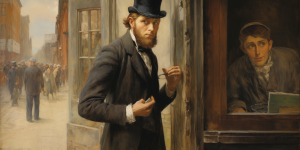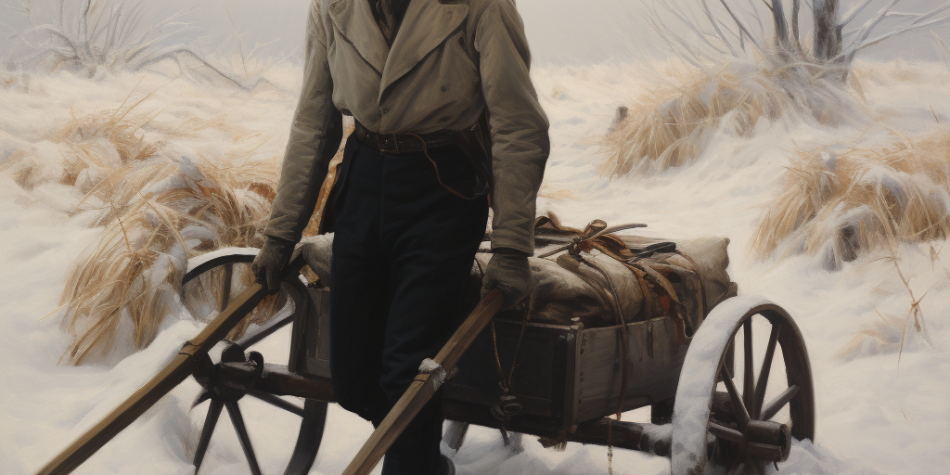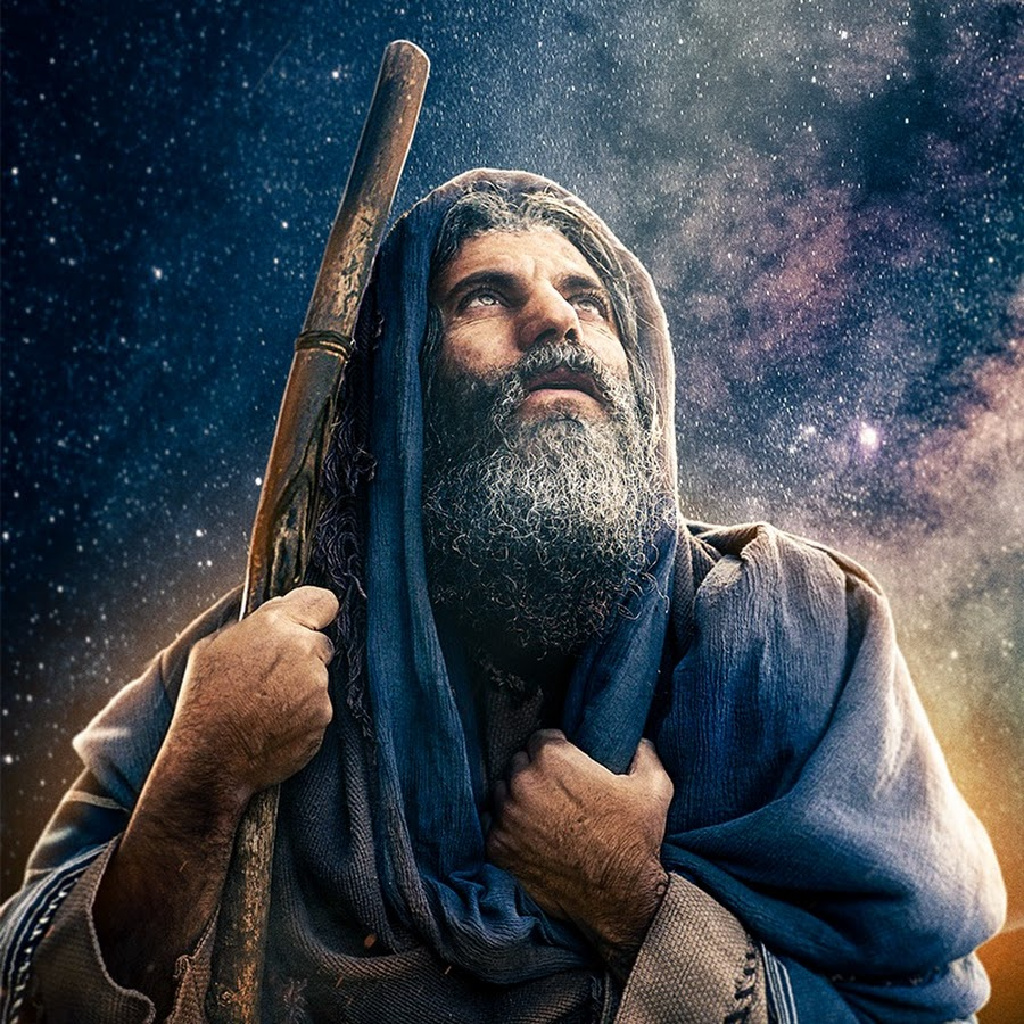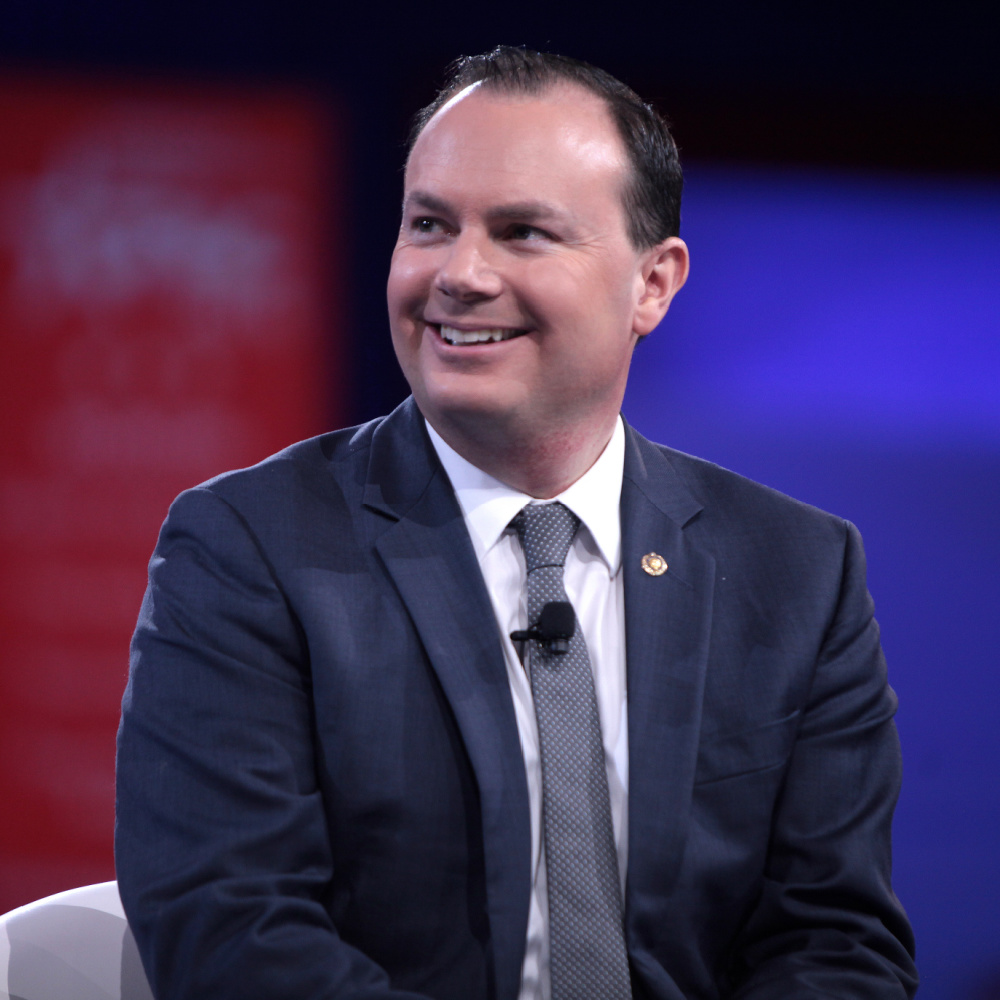Levi Savage Jr. was a man imbued with a spirit of independence. As unyielding as the hardwood trees of his native Vermont, his character was shaped by his embrace of the Church’s teachings, his conversion fortifying his already resilient spirit.
He undertook numerous missions in service to his new creed, including as one of the first missionaries of the restoration to Asia. But it was his appointment to the Willie Handcart Company that would thrust him into the crucible of faith and forever reshape his identity.
As the Willie Handcart Company prepared to embark late in the season, clouds of apprehension loomed. To Levi, who wore his years of experience like a trustworthy cloak, these clouds hinted at a storm of hardship and danger. So he spoke out, his voice a lone trumpet sounding the alarm amidst the quiet murmurs of assent. His stalwart stand, his refusal to bow before the face of potential peril, was a testament to his identity as an independent thinker.
But the fateful decision was made, against Savage’s instincts, to march forward into the winter’s jaws. The chasm between his caution and the company’s optimism yawned ever wider. Savage, a man sculpted by survival instinct and prudent judgment, found himself grappling with a choice that countered the very fabric of his identity. How could his faith ask him to do what he knew would put him at risk?
He wrote in his journal, “What I have said I know to be true; but seeing you are to go forward, I will go with you, will help all I can, will work with you, will rest with you, will suffer with you.”
Soon, the Willie Handcart Company found itself battling against the very dangers Savage had forewarned. Savage became a pillar of strength amidst a teetering company. His role within the company transformed from a dissenter to a bastion of support, embodying tireless service and unyielding determination.
Levi Savage Jr.’s decision to support the Willie Handcart Company, despite his concerns, marks a poignant sacrifice of personal belief. This tale demonstrates his capacity to adapt his identity to the unyielding call of faith.
Zina D.H. Young

In 1821, a girl named Zina D. H. Young was born into an unassuming life in New York. Her days revolved around the customary tasks of a woman of her era, her life as predictable as the change of seasons. But then, a spiritual tempest was ushered in by the arrival of the teachings of The Church of Jesus Christ of Latter-day Saints. Zina found herself caught up in the gale, her spirit resonating deeply with the Church’s doctrines, her heart stirred by a spiritual awakening. In a leap of faith, she chose to embrace this new religion, unwittingly stepping onto a path that would dramatically reshape her life and identity.
A radical doctrine, the principle of plural marriage, was introduced to Zina. This revelation created a seismic shift in her world. She grappled with the dissonance, her conscience pulling her in opposite directions. To embrace this doctrine meant severing ties with the notions of womanhood and marriage that she had imagined and hoped for herself. This wasn’t just about a choice between faith and society. It was a test of her identity, the forging of her soul in the crucible of faith.
Zina’s faith took the reins. She was wedded first to Joseph Smith and, following his death, to Brigham Young. Her societal image shifted from the forward-thinking nurse and one-day suffragette to a polygamous wife, a symbol of a contentious doctrine. Through her marriages, she had willingly draped herself in an identity woven with the threads of faith. In her own words, “I dedicated myself and all I had to the Lord and to Joseph [Smith], and accepted the principle of plural marriage as a part of my religious duty.” These words encapsulate her surrender to faith and the profound transformation she underwent.
Embracing the controversial principle of plural marriage hurled Zina into the heart of societal disapproval and personal turmoil. Yet, these trials and tribulations, much like a refining fire, only served to strengthen her faith and shape her identity. Zina’s diary paints a poignant picture of this experience: “I thought it a very serious moment. A crisis that would affect my whole life.” Her journey was one of profound transformation.
This path that she never would have chosen on her own led Zina to an interest in women’s health. Eventually, she established the Deseret Hospital, where she trained women in nursing, medical care, and obstetrics.
Zina D. H. Young’s willingness to accept the sacrifice the Lord had asked of her, even her own expectations of her marriage, paved the way for an extraordinary life. Zina’s story paints a vivid portrait of the transformative power of faith, illustrating how one can truly redefine themselves by surrendering to a higher calling.
William Clayton

In the heart of industrial England, a thriving businessman named William Clayton navigated the bustling streets. The air was thick with the smell of ink and paper—a tangible testament to his thriving occupation. His name was known and respected, a symbol of his society’s upper crust. But amidst the humming marketplace, a melody of another kind beckoned him.
In a small gathering tucked away from the commerce-driven clamor, Clayton first encountered the teachings of The Church of Jesus Christ of Latter-day Saints. The message was simple yet profound, whispering promises of eternal truths that resonated in the caverns of his soul. Clayton, drawn towards this symphony of faith, opened his heart to these doctrines, stepping onto a path that would reshape his destiny.
Clayton’s life took on a new rhythm when a revelation came for the Saints to gather in America. This was not simply a call to a new land but a summons to an unfamiliar self. It presented a monumental challenge for Clayton; he had to weigh the scales between his comfortable, well-curated life in England and the call of his fledgling faith.
With the weight of his decision pressing down on him, Clayton found himself on a merchant’s doorstep. He placed his successful business on the selling block and, in doing so, set the first cornerstone of his new identity. He traded in his ledger for a pioneer’s provisions and traded his comfortable home for the expanse of the untamed American wilderness.
Clayton—once defined by prosperous business dealings and society’s approval—now endured rationed meals that barely staved off hunger on a wave-battered ship.
The hardships were abundant, but Clayton never wavered. “We are in the hands of the Lord,” he wrote, “let Him do with us as seemeth Him good.” His resolution in the face of adversity was evident; he no longer saw himself as that English businessman but a pioneering servant of God, as invested in the survival and success of his companions as in his own.
Arriving in America, Clayton’s life took a dramatic turn. The use of his business acumen was replaced by ecclesiastical duties. He held the mantle of a scribe, a councilman, and a community leader. Soon he joined the first group of pioneers to leave on the trek to Utah. Clayton penned, “Come, Come, Ye Saints”—the hymn a testament to faith in the face of uncertainty.
As Clayton wrote, “We’ll find the place which God for us prepared.” And in many ways, not just the physical place, but if we prioritize God, we’ll become the person that God “for us prepared.”

















